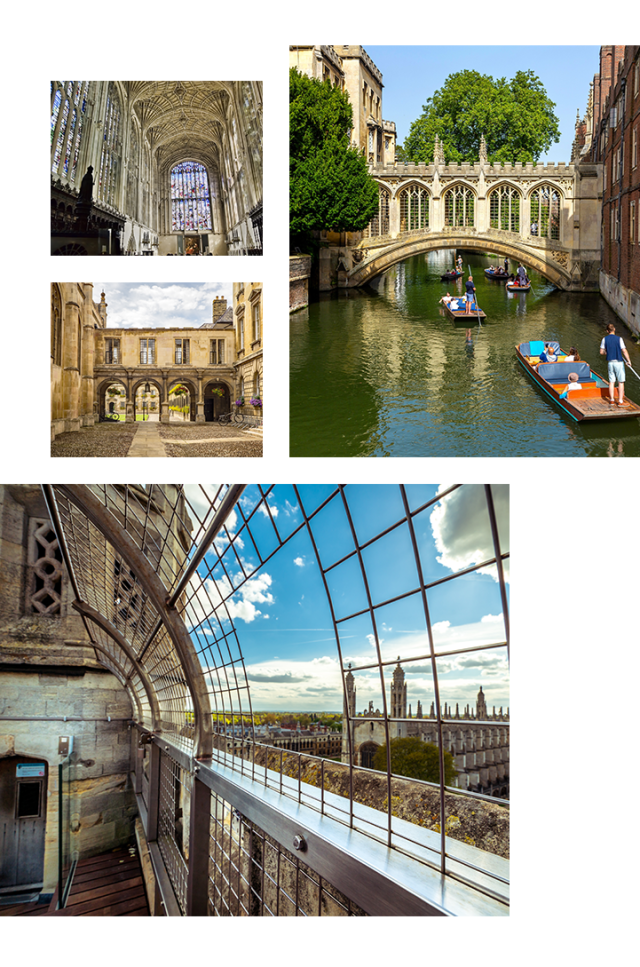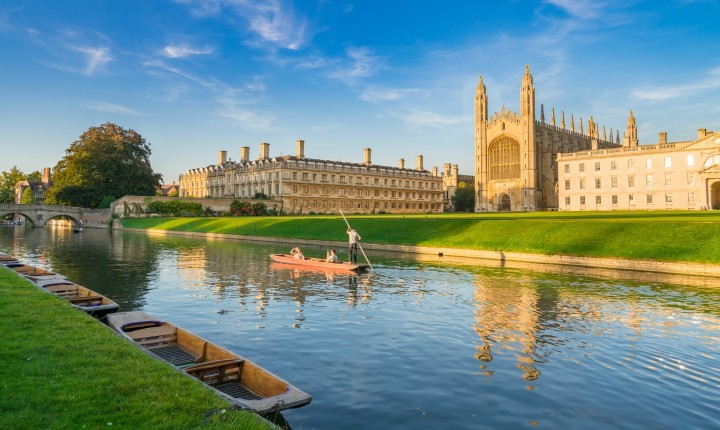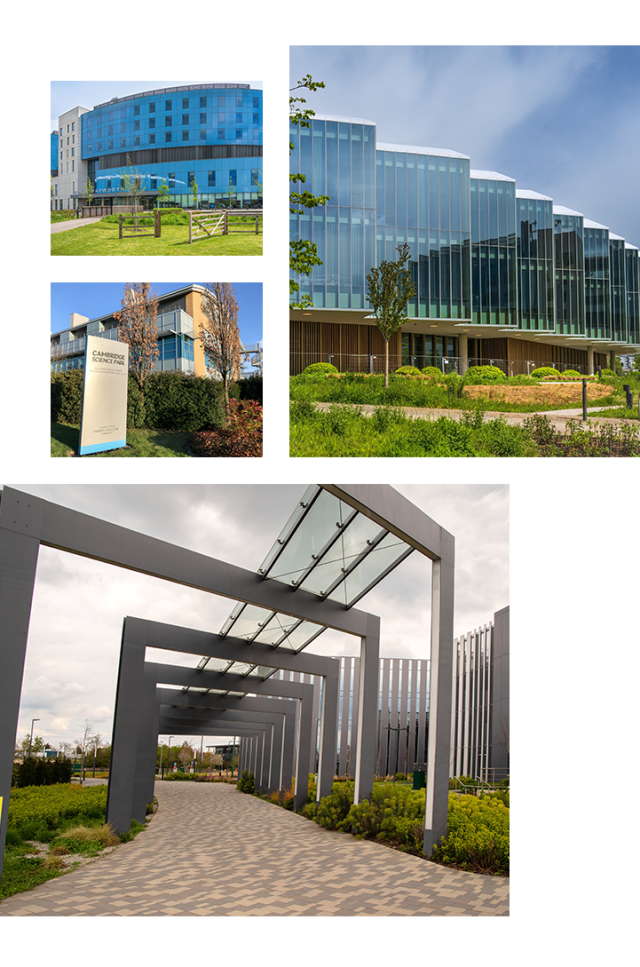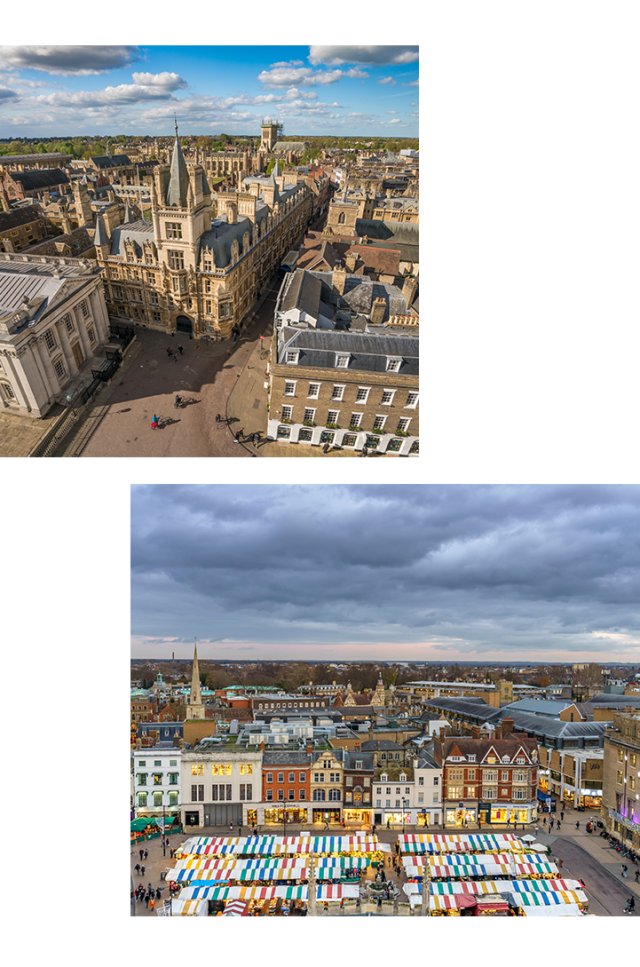Search Listings
Search Listings

The UK’s fastest growing city over the past two censues, Cambridge, has rapidly developed into one of the leading hubs for research and innovation, at the heart of the region known as Silicon Fen.

Aside from housing one of the most prestigious universities in the world, Cambridge is a quintessentially English city with a history to match.
Originally founded by the Romans on Castle Hill, Cambridge started to be recognised as a relatively prosperous and growing town following the Danes’ control of East Anglia in 875 AD. The increasing prominence led the Normans to build a now non-existent castle in 1068, and by 1207, Cambridge received its town charter.
While the majority of UK towns and cities are named after the bodies of water surrounding them, Cambridge breaks this norm and instead, the River Cam is named after the town.
Known during the Anglo-Saxon period as 'Granta Brycge' (or 'Granta Bridge'), the town was aptly named after the River Granta. Over time, as the dialects in the English language evolved, 'Granta Brycge' gradually became 'Cambridge' and people mistakenly assumed the river was called the Cam, leading to its renaming.
At over 800 years old, Cambridge University is recognised as the 4th oldest university in the world. Peterhouse, the first college, was constructed in 1284 after scholars of Oxford University fled the town to Cambridge in 1209.
Since then, the institution has become deeply intertwined with the local culture and has housed some of history’s most famous figures, including Sir Isaac Newton, Charles Darwin, and Stephen Hawking, to name just a few. Today, the prestigious university holds the record for the greatest number of affiliates to win the Nobel Prize at 121.

Perhaps the most famous activity in Cambridge is punting down the River Cam, dating back to medieval times when goods were transported via the river. The city contains over 300 commercial punters and an estimated 900,000 people participate each year, making the College back section of the river the highest revenue-generating body of water per square meter in the country.
A visit to Cambridge should include seeing the historic university colleges, particularly King’s College Chapel. Construction began in 1446, shortly after the founding of Henry VI’s King’s College, and its stunning Gothic design remains a prominent and essential attraction.
The other colleges can also be viewed through various guided walks that describe university’s historical significance, as well as broader city centre tours being available.
The last two censuses have identified Cambridge as the fastest-growing city in the UK. With its population rising from 123,900 in 2011 to 145,700 in 2021, a 17.9% increase compared to the nation’s overall 6.6%, Cambridge's growing status as an attractive place to live is evident.
As a result, the demand for housing in Cambridge is exceptionally high, leading to the fastest rates of residential construction in the country over the past 10 years. In fact, Cambridge ranks as the second most expensive city in the UK for both residential real estate and commercial properties, trailing only behind London.
Additionally, due to the significant student population, estimated at approximately 34,000 annually from both the University of Cambridge and Anglia Ruskin University, the city has a lower median age and higher demand for rental properties.
Located in the East of England, Cambridge is just 48 miles north of London, with excellent transport links. The M11 motorway provides direct access to London and connects with major routes like the A14, A10, and A428, while the international hub of London Stansted Airport is just 31 miles away.
The main railway station offers approximately six services per hour to London Liverpool Street, whereas, the Cambridge North station enhances access to business parks and the wider region. The upcoming Cambridge South station will further boost connectivity to the Cambridge Biomedical Campus.
The East West Rail initiative also aims to eventually connect the innovation hubs of Oxford and Cambridge, fostering collaboration and business growth in the region.

Overall, In 2021, the Cambridge economy was valued at £7 billion in gross value added (GVA), with an 8.6% growth from 2020 following the pandemic.
The University of Cambridge significantly impacts both the local and national economy. London Economics estimates the university’s contribution at approximately 30 billion annually, supporting over 86,000 jobs across the UK. While £587 million is generated from direct tourism, an immense £23.1 billion is derived from the University's research and knowledge-sharing initiatives, including associated spinout and start-up companies.
The university’s influence has helped develop Cambridge and its surroundings into leading hubs for technology, innovation, research, biotechnology, and advanced manufacturing, earning the nickname 'Silicon Fen'.
The knowledge industries drives a significant 40% of the city’s GVA. For the third year running, Cambridge ranked as the world's most intensive science and technology cluster in 2024, surpassing locations such as Silicon Valley and Tokyo, as well as leading in cluster intensity for patent applications and scientific articles.
The city saw the third-fastest growth in R&D-intensive employees nationwide from 2011 to 2021, with approximately 20% of employees in this sector, making it the highest share globally.
Pioneering international businesses such as AstraZeneca, ARM Holdings, and Darktrace, all constituents of the FTSE 100 Index, are based in the district.
As a result, Cambridge has access to some of the nation's most skilled workers, with the highest share of graduates among UK cities. 65% of its working-age population holds degrees, compared to the 56% in London. This contributes to Cambridge having the 6th highest pay in the country.

Cambridge has a well-documented laboratory and office space supply shortage, struggling to meet the rapidly growing demand. As a result, the city has several speculative commercial projects in the pipeline, totalling hundreds of thousands of square feet of tech and office spaces.
A few of these numerous examples include BioMed Realty's One Granta at Granta Park, Abstract Mid Tech's South Cambridge Science Centre, and RailPen's Botanic Place.
A key project is the Cambridge North developments, which brought the city a 217-bed Novotel in 2021 and the 94,000 sq ft One Cambridge Square office building in 2023. Their next phase, which has been approved, will deliver 425 new mixed-tenure homes and up to 578,000 sq ft of new science, technology, and office space, furthering the ambition to create a new city district.
Commencing in 2018, the Cambridge Market Square project will revamp the city centre and extend into the Civic Quarter, including landmark sites such as the Guildhall and the Corn Exchange, transforming the area into a more attractive destination once funding has been finalised.
The 'Cambridge 2040' vision, supported by Rt Hon Michael Gove, aims to deliver 150,000 new homes in the Greater Cambridge area, potentially adding £6.5 billion to the economy and supporting the city's ambitious expansion in becoming a true global hub.
Our team
We're proud to employ more than 450 talented individuals working across a multitude of disciplines.
Office finder
Eddisons is rapidly growing; emphasised by our nationwide network of 30 offices across the UK.
Contact us
We're ready to take your call and can quickly pass you through to the right department.
Newsletter
Join thousands of property managers, occupiers, landlords and investors receiving the latest insights.
Local office finder
Eddisons boasts a national presence, with offices located throughout the UK.
Discover your nearest one today.
Find Your Office
Contact details
2nd Floor, 10 Wellington Place, Leeds, LS1 4AP
This site uses cookies to monitor site performance and provide a more responsive and personalised experience. You must agree to our use of certain cookies. For more information on how we use and manage cookies, please read our Privacy Policy.